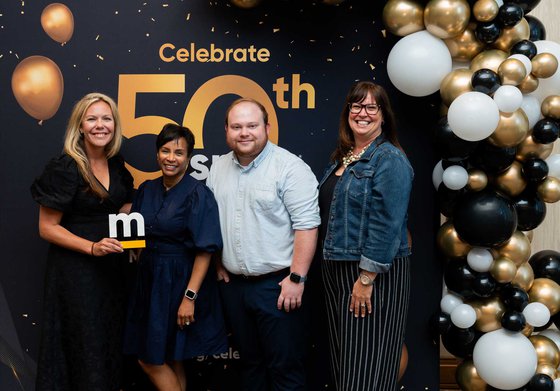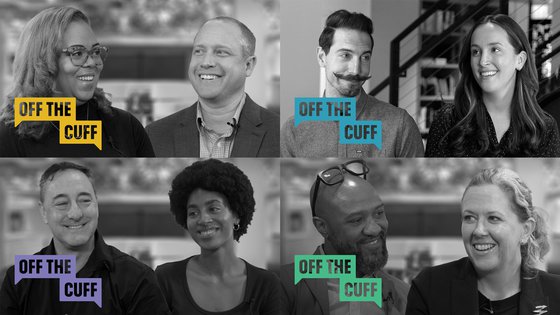newsletter
Sign up for the Marketer QuickLook Newsletter
SMPS Headquarters
625 North Washington Street
Suite 302
Alexandria, VA
22314-1936
email
info@smps.org
phone
703.549.6117



Management
Leading People:
The Perfect Storm

By Heather Polivka
Domain

A perfect storm is defined as multiple forces uniquely coming together to create an unusually powerful impact.
In the A/E/C industry, there has been a common practice of promoting people into leadership based on their technical skills and expertise, not because they have the foundational power skills (formerly known as soft skills) for leading people. I’m not suggesting that technical skills are unimportant, but rather that using them as the sole determinant for promoting individuals into people leadership is one of the forces that is making leadership, and our overall workplaces, more challenging.
According to Alexandra Levit, a workforce futurist and author of Humanity Works: Merging Technologies and People for the Workforce of the Future (Kogan Page, 2018), soft skills give people “career durability”. It helps them to be successful over the long term. According to Harvard Business Review (see “What Makes a Leader, January 2004), “[Emotional intelligence] accounts for nearly 90 percent of what moves people up the ladder when IQ and technical skills are roughly similar.”
The practice of promotion based on technical skills is not unique to A/E/C. In many industries, the software developer becomes the manager of software development, the salesperson becomes the sales manager, and the customer service representative becomes the customer service manager. This approach to leadership doesn’t work. It has never worked. Why?
The skills and experience that make for a great engineer as an individual contributor are not the same skills that make for a great leader of other engineers. One requires understanding the work at hand, and the other requires understanding people and aligning that understanding to support their success at completing the work at hand, all while forwarding their career success. Very different.
When we promote people into leadership without the foundational skills, only 30% of them get training or support. Most of the training provided is operational or compliance in nature. While this supports the ability to hire and onboard new employees and ensure laws are followed, this type of training provides little support in navigating the complexities of leading human beings day in and day out.
While this has been the reality of leadership in the A/E/C industry for decades, you may be asking yourself why we are feeling leadership pain now more than ever. The answer? Multiple forces are uniquely coming together to create an unusually powerful impact.
The Numbers
The youngest two generations are larger than the previous three generations combined. To serve clients and support growth, A/E/C firms are dependent upon their ability to attract and retain Millennials and Gen Z talent.
Millennials and Gen Z are the most ethnically and racially diverse generations. Creating an environment of inclusion and belonging isn’t “nice to have”, it is a business imperative to retain and engage great employees.
The top leadership at many A/E/C firms are from previous generations, creating a Grand Canyon between leadership and employees where the perfect storm of forces has taken hold.
Generational Shift
Generational Shift
There is a massive and unprecedented generational shift happening in the US and globally. For the first time in history, we have 5 generations in the workforce. Even more so, the youngest two generations far outnumber the oldest three generations.
Millennials and Gen Z represent the bulk of our frontlines and middle management in A/E/C firms. What they need and expect out of their work experience is distinct from generations before. How they want those needs met is unique from generations before. What they will tolerate and accept in their work experience is decidedly different than generations before.
I sometimes hear A/E/C leaders bemoan the attitudes, practices, and expectations of the two youngest generations. Some of this is valid, as the two youngest generations enter the workforce without some of the same skills that older generations take for granted. For example, Millenials and Gen Z are comfortable using videoconferencing, collaboration platforms, and online chat for communication. Emailing and phoning people, though, may not be as comfortable as these are not communication methods they use as much. In many firms, the younger two generations need training in email and phone etiquette as much as the older three generations need training on Slack and Teams.
Some complaints by leaders are out of context. Employers lament the lack of loyalty, without understanding the younger two generations grew up watching their parents work on vacations and be accessible nights and weekends, only to get laid off later. As a result, the younger two generations aren’t buying into the concept of company loyalty because they haven’t seen it demonstrated to be a two-way street between employers and employees.
The younger two generations are some of the hardest working, but how they choose to deploy that discretionary work is different. They aren’t willing to naively give that work to employers without some benefit to them. Instead, over 50% have started their own business or are doing a side hustle to not be dependent upon their employers as a single source of income.
Experience leading people is not enough for navigating five generations in the workplace. Leaders need foundational people skills to be able to effectively motivate, engage, and develop high-performing teams across five generations. People at all levels of the firm need to “flex in” to one another. Everyone, leaders and employees alike, needs to understand what motivates each generation and be willing to flex their approach accordingly. If we all do that, we can harness the power of the multi-generational workforce instead of solely experiencing the pain.
But wait, there’s more.
Flexible Work
Flexible Work
One major outcome of the pandemic is the acceptance and continued growth of flexible work. Whether that flexibility is fully remote work, hybrid work, the four-day and ten-hour work week, or many other iterations, flexible work is here to stay. The cat is out of the bag and it isn’t going back in.
Leading people in a flexible work environment requires a more fully developed set of power skills. Trust with check-ins versus “eyes on” oversight. Outcomes with output as an indicator versus solely output. Intentional outreach and relationship building versus the convenience of in-person “fly by” interactions. The list goes on.
Given most A/E/C leaders didn’t “grow up” in their careers with flexible work as an option, they have limited experience in navigating this ever-evolving reality. Without foundational power skills to understand and navigate our own emotions and mindset, much less those of others, many leaders are struggling. Comfort zones want to dictate everyone return to how things operated and how we worked in 2019. Instead, we need leaders to evolve with the new reality, demonstrate a growth mindset, and create space for all of us to build up our emotional intelligence and power-skill muscles.
What to do
What to do
Foundational people skills and emotional intelligence (EQ) are key to effectively navigating the perfect storm of generational shifts and flexible work to turn the impact of the numbers in your firm’s favor.
Before you book that training day, though, it is important to understand that developing EQ and power skills is a marathon, not a sprint. No one starts running today and will run a marathon tomorrow. It requires training. The same can be said for developing power skills. Here are a few tips:
Look for development that provides for bite-sized training over time versus drinking from the firehose in a few sittings. Neuroscience proves this is much more effective for learning.
Ensure practical application of the content through experiential learning to embed, retain, and build skills. If it is just concepts with no immediate hands-on application, it won’t stick.
Hire people or solutions with real-world experience in leading teams. While theories and tools are nice, there are entirely too many development solutions that are taught by people with an intellectual understanding of leading teams, even PhDs, versus real-world applications.
Create a safe space. No one likes to feel like they aren’t good at something, particularly high performers. The reality is that none of us are good at something when we first start. It is vital to create a space where people feel comfortable being awkward as they try new things and, over time, get more proficient.
Provide support. When learning new skills and navigating the complexity of human beings, leaders need support to ask questions, be coached, and role-play. Ideally, this support should be provided for a year to help them navigate a full business and talent cycle.
It is possible to navigate this perfect storm. What won’t work is doing what we’ve always done.
A/E/C firms have learned how to incorporate technology into their work as compared to twenty years ago. It was awkward at first. It is still awkward when new systems are implemented or new technologies are incorporated! So why do it? To remain competitive in the marketplace.
Those A/E/C firms that successfully build the power skills of their leaders to navigate the perfect storm are the ones who will be the most competitive. They will be able to attract the talent they need to serve their clients. They will retain organizational knowledge of projects and client work as their best employees choose to stay and grow their careers. They will come up with the most compelling, innovative, and effective solutions because they are creating a work environment where power skills allow people to show up as the best version of themselves. Just as individuals with power skills have career longevity, firms with power skills will have industry longevity to navigate this perfect storm and any others that come along.
Share:
Heather Polivka is the Founder and CEO of Awesome People Leaders, a neuro-science-based manager development experience focusing on EQ, healthy work behaviors, inclusion & belonging, and power skills for STEM industries. Awesome People Leaders (APL) was recently named to Inc Magazine’s 2023 Power Partners list as one of the best B2B providers for small and mid-sized businesses.
Connect with Heather on
READ NEXT



















